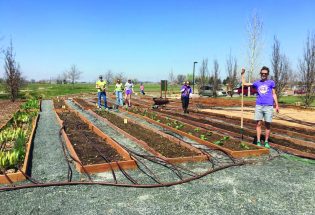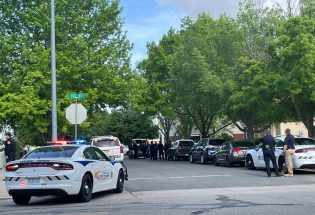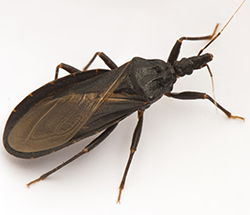News Bites – August 25, 2022
On recommendation from the Larimer County Sheriff, the Board of Larimer County Commissioners at their regular Administrative Matters meeting today will allow the current fire restrictions in unincorporated Larimer County to expire on August 29, 2022, at 12:01 p.m.
Because of above-normal moisture levels, and cooler temperatures, Larimer County Sheriff’s Office of Emergency Operations Director Justin Whitesell felt comfortable allowing the restrictions which were put in place on July 29, 2022, to expire.
Larimer County residents and visitors are still urged to exercise caution with all combustible materials.
+++++++++++++++++++++++++
The Larimer County Department of Health and Environment (LCDHE) has a limited supply of monkeypox vaccine for high-risk individuals.
High-risk individuals are currently defined as:
• Anyone aged 18 years and older who has had close physical contact with someone who has monkeypox in the last 14 days.
• Gay, bisexual, or other men who have sex with men, or transgender, non-binary, or gender-diverse people aged 18 years and older who:
• Have had multiple sexual partners in the past 14 days or
• Have had sexual partners they did not previously know in the past 14 days, or
• Have had close physical contact with other people in a venue where anonymous or group sex may occur.
People who test positive for monkeypox are asked to self-isolate until all lesions have scabbed and been replaced by new skin. The Colorado Department of Public Health and Environment (CDPHE) continues to expand vaccine distribution across Colorado. Currently in Colorado there are 182 cases of monkeypox, including 4 in Larimer County.
Anyone can become infected with monkeypox. The virus can spread from person to person when someone who has monkeypox has close contact with someone else. Close contact means physical contact, including sex, with a sick person’s sores, bumps, or lesions, and through intimate or prolonged exposure to respiratory droplets. Monkeypox can also spread through touching the bed linens or clothing of someone who is sick. Brief interactions without physical contact are unlikely to result in getting the virus.
Monkeypox may begin with flu-like symptoms that include fever, headache, muscle aches, swollen lymph nodes, and exhaustion. Typically, a rash or skin bumps develop within 1 to 4 days after the onset of fever and can appear on most locations of the body. Fatality is rare in the current outbreak.
For more information and to complete the eligibility and vaccine appointment request form, residents should visit www.larimer.gov/monkeypox. For additional assistance, residents should call the LCDHE monkeypox call-center at 970-498-5500.
+++++++++++++++++
The Colorado State Board of Education at its monthly meeting on Tuesday and Wednesday made several amendments to proposed additions to the Holocaust and genocide studies in the Colorado Academic Standards for social studies.
Last year the state board adopted standards for Holocaust and genocide studies as required by House Bill House Bill 20-1336. In addition, as part of the required review of all of the Colorado Academic Standards for social studies this year, the board is reviewing the Holocaust and genocide studies. Each school district and charter school has until July 1, 2023, to incorporate these standards into an existing course that is currently a condition of high school graduation.
The proposed additions to the social studies standards were developed by a committee of educators. Notable changes made by the board to the proposed updates would differentiate ethnicity and race as it relates to culture and clarify the official name of the Nazi party as the National Socialist German Worker’s Party to ensure broad understanding of the history of the Holocaust.
CDE staff will include these changes in the final social studies revision recommendations anticipated to be presented to the board by the end of this year. In March, the board revised its timeline for the review and revision of the social studies standards to allow for full consideration of public feedback and thorough consideration for the implementation of each area required by legislation to be wrapped into the social studies standards.
At its September meeting, the board will review proposed amendments to the personal financial literacy standards. The board will continue its review in October with media literacy and civics standards required by House Bill 21-1103 and Senate Bill 21-067, respectively. CDE anticipates that the board will conclude its review of the social studies standards in November when it reviews final recommendations from the History, Culture, Social Contributions and Civil Government in Education Commission created by House Bill 19-1192.
+++++++++++++++++++++
Last Friday the Department of Defense (DoD) announced the authorization of a Presidential Drawdown of security assistance valued at up to $775 million to meet Ukraine’s critical security and defense needs. This authorization was the Biden Administration’s nineteenth drawdown of equipment from DoD inventories for Ukraine since August 2021.
Capabilities in this package include ammunition, artillery, Scan Eagle Unmanned Aerial Systems, anti-radiation missiles, multipurpose vehicles, mine clearing equipment and other assets.
In total, the United States has committed approximately $10.6 billion in security assistance to Ukraine since the Biden administration took office. Since 2014, the United States has committed more than $12.6 billion in security assistance to Ukraine.
+++++++++++++++++++++
According to the Colorado Secretary of State’s office, the Colorado Business Fee Relief Act cuts the cost of starting a business to $1. Since it went into effect on July 1, 17,000 new business registrations and 5,200 trade names have been filed with the Colorado Secretary of State’s Office.
The Colorado Business Fee Relief Act, which passed through the legislature in May 2022 is estimated by state officials to save Colorado businesses and entrepreneurs over $8.4 million in business fees for filing documents with the Colorado Secretary of State’s Office during the 2022-23 fiscal year, which began on July 1, 2022. The act was sponsored by Representatives Lisa Cutter and Tom Sullivan, and Senators Brittany Pettersen and Chris Kolker.
+++++++++++++++++++++++
The Colorado State Forest Service (CSFS) is now accepting applications for the Forest Restoration and Wildfire Risk Mitigation (FRWRM) Grant Program. Community groups, homeowner associations, utilities and non-profit organizations are just some of the groups eligible to apply for grants from the $15 million funding pool. Applications will be accepted until 5 p.m., Oct. 19, 2022, and applicants can request help from their local CSFS Field Office.
“Helping Colorado communities in the wildland-urban interface prepare for wildfire is a top priority for the Colorado State Forest Service,” said Matt McCombs, state forester and director of the CSFS. “This year, thanks to support from Governor Polis and the Colorado State Legislature, the Colorado State Forest Service has $15 million available for grants that fund efforts to reduce fuel loads, mitigate wildfire risk and improve the resiliency of Colorado’s forests. I encourage Coloradans to work with their neighbors and friends to get an application together and put these funds to work on the ground in their communities.”
The FRWRM Grant Program helps fund projects that strategically reduce wildfire risk to property, infrastructure and water supplies and that promote forest health through scientifically based forestry practices. The competitive grant program is designed to reduce risk to people and property in the wildland-urban interface (WUI) and support long-term ecological restoration. The projects can be on private, state, county or municipal forestlands.
Applicants must coordinate proposed projects with relevant county officials to ensure consistency with county-level wildfire risk reduction planning. Follow-up monitoring also is a necessary component of this grant program to help demonstrate the relative efficacy of various treatments and the utility of grant resources. The CSFS will work with successful project applicants to conduct project monitoring and conduct site visits to assess effectiveness and completion of projects.
Additional emphasis will be given to projects that are identified through a community-based collaborative process, such as a Community Wildfire Protection Plan (CWPP), are implemented strategically across land ownership boundaries, are conducted within a priority area identified in the 2020 Colorado Forest Action Plan, use the labor of an accredited Colorado Youth or Veterans Corps organization or include forest treatments that result in the protection of water supplies.
Applications must be submitted electronically to local CSFS Field Offices by 5 p.m. MDT, Oct. 19, 2022. A technical advisory panel convened by the CSFS will review project applications and make funding recommendations. Funding will be awarded by March 31, 2023. Applications are available by visiting csfs.colostate.edu/grants/forest-restoration-wildfire-risk-mitigation/.
- May, 10 2018

Agriculture for everyone – Bert...
By Amber McIver-Traywick The Surveyor Courtesy photo - Volunteers help cultivate...
- May, 23 2022

Police activity resolved in Berthoud
A police incident that triggered an emergency notification being sent out in Berthoud Monday afternoon...
- May, 31 2016

Berthoud Day rolls on for 62nd year
By Surveyor staff For over 60 years, people have enjoyed the annual Berthoud Day festivities...
- May, 02 2019

Unwelcomed advances from “kissi...
By Amber McIver-Traywick The Surveyor Although they aren’t new to Colorado, Triatoma protracta, one of...
- June, 25 2020

Customize your tattoo at new Berthoud...
Courtesy Photo - Mike O’Neil, co-owner of Mountain Avenue Tattoo, stands May 28 outside his...
- March, 01 2018

The 2018 precinct caucus will take pl...
By Amber McIver-Traywick The Surveyor If you are currently a registered Democrat or Republican in...

POLICEBLOTTER
Community News
Northern Water sets C-BT quota at 70% for 2024
Community News

Emotions run high during Revere Property hearing
Community News
Snowpack at 119% above normal
Community News

Karspeck to serve third term as Berthoud mayor
Community News

OPINION – No bitchin’ allowed
Community News
Roy Tripi to become principal of BHS on July 1
Community News
COMMUNITY CALENDAR:
Community Calendar – add an event
Homestead Fine Art Gallery First Fridays OPEN HOUSE
03 May 4:00 PM - 7:00 PM
Homestead Fine Art Gallery First Fridays OPEN HOUSE
07 Jun 4:00 PM - 7:00 PM
Homestead Fine Art Gallery First Fridays OPEN HOUSE
05 Jul 4:00 PM - 7:00 PM
Homestead Fine Art Gallery First Fridays OPEN HOUSE
02 Aug 4:00 PM - 7:00 PM
Homestead Fine Art Gallery First Fridays OPEN HOUSE
06 Sep 4:00 PM - 7:00 PM
Homestead Fine Art Gallery First Fridays OPEN HOUSE
04 Oct 4:00 PM - 7:00 PM

